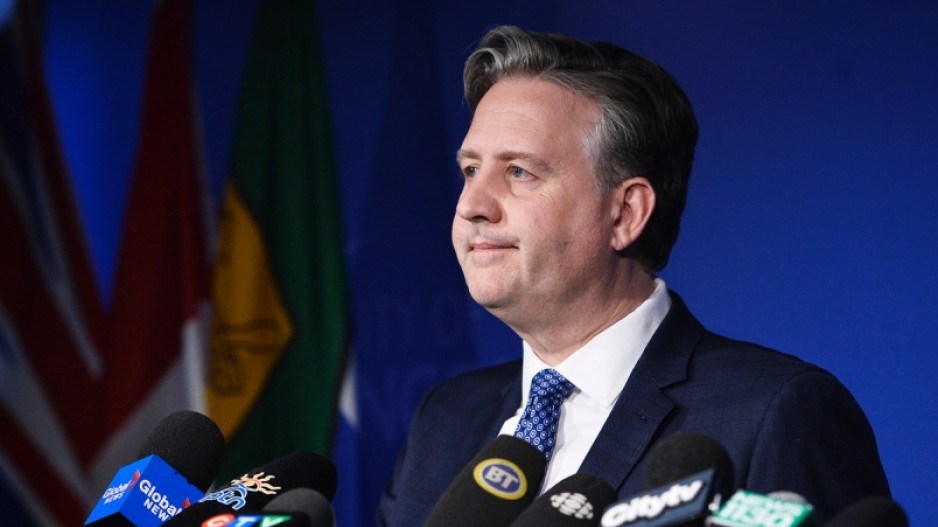A B.C. Court of Appeal judge has agreed to allow seven current and former NPA members liable for ex-Mayor Kennedy Stewart’s legal costs to appeal a B.C. Supreme Court judge’s ruling.
First, they must pay Stewart $25,000.
Last summer, Stewart successfully used the Protection of Public Participation Act (PPPA) to quash their defamation lawsuit stemming from his early 2021 news release that claimed the NPA board included right-wing extremists.
Justice Wendy Baker threw out the defamation lawsuit when she ruled Stewart acted in the public interest and without malice. In her March 20 ruling on costs, Baker wrote that the defamation claim had substantial merit, but the plaintiffs did not prove they were harmed.
Stewart alleged their action was brought in bad faith or for an improper purpose.
In October’s civic election, Stewart lost the mayoralty in a landslide to 2018 runner-up Ken Sim of ABC Vancouver. None of Stewart’s Forward Together candidates won a seat on city council.
Similarly, all NPA candidates under Beijing-based leader Fred Harding were shut-out at the ballot box.
Baker ruled the plaintiffs must pay Stewart’s legal costs, in excess of $126,000, but declined to award him damages. Costs are now approximately $155,000, according to Court of Appeal Justice David Frankel’s July 5 ruling.
“The points the applicants intend to advance warrant the time and attention of this Court,” Frankel stated. “A decision on these points will provide further guidance with respect to the exercise of a judge’s discretion under [the PPPA]. As the respondent will be entitled to some of his costs regardless of the outcome of the appeal, a stay is granted on the condition the applicants pay $25,000 in partial payment of those costs.”
He gave the applicants until July 31 to pay the sum to Stewart, then file and serve their appeal by Aug. 4 and submit a statement of facts by Sept. 5. The stay will remain until the end of the year.
Frankel said the applicants contended Baker erred in several respects.
“They take issue with a number of her findings, including that their actions in regard to Mr. Stewart’s counsel were strategic and inappropriate,” said Frankel. “They also contend she conflated what they did in that regard with their purpose in bringing the action.”
Frankel disagreed with the argument that they would suffer irreparable harm on the basis that one of them, Wes Mussio, is a practising lawyer who would have to pay the judgment within seven days or face potential discipline from the Law Society of B.C.
“I consider this argument speculative. It assumes that in the event Mr. Mussio does not immediately pay the assessed costs, he would be unable to provide the executive director with an adequate proposal. It also assumes that the executive director would attach no weight to the fact that leave to appeal the costs order had been granted.”
Karol Suprynowicz, a lawyer at Mussio’s Vancouver firm, represents the seven.
Mussio, on his behalf, said he was pleased with Frankel’s decision.
“Acting in good faith to clear one’s name should not automatically result in punitive legal cost implications if the person is unsuccessful. Otherwise, access to justice will be severely compromised,” Mussio said by email. “After all, if one automatically gets a large legal cost judgment against him for not being successful, then who will ever take the risk of going forward with a lawsuit to clear their name?”




